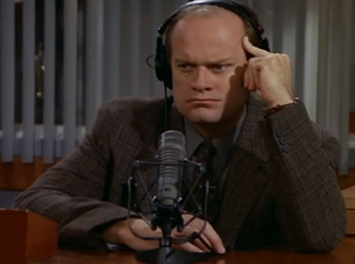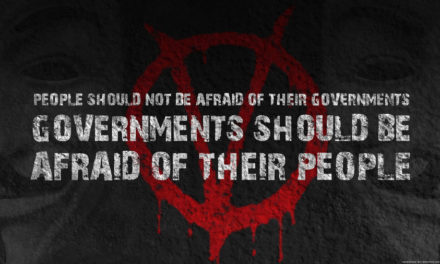Helllllooooo Otterites!
NaNoWriMo 2021 is over.
If you’re not a writer, you don’t understand how big a deal it is to make it to the end of November having written every single freaking day. Not only that, but to have hit your daily goal of 1,667 words and/or your monthly goal of 50,000 words.
This year, I did it. I “won” NaNoWriMo. I won it in the official sense. I actually hit 50,000 words back on November 17th. That’s the day I won it. I also won it in the sense that I wrote every day. Even when it meant staying up extra late to knock out 500 words on Thanksgiving. I knew I should have written that morning, but I didn’t. There were only 4 days where I didn’t hit the daily goal. Four. I actually impressed myself to be honest. I wrote 77,124 words for the month. Still not done with the first draft though. I have several scenes left including the climax and the epilogue.
I bring up this achievement, not so you can all marvel in awe and wonderment at Robert’s writing prowess (though you can feel free to do so at any time), but to point out some things I learned and also some things I already knew that were just brought to the front of my brain this month.
- You can’t finish if you don’t start. Seems pretty obvious, but how many of us keep putting things off that we want to do, but don’t want to do the work to get? If any one of you says not me, you’re a freaking liar and don’t belong here. Just kidding, you can stay. Maybe you’ll learn something.
- Habits aren’t easy to establish. Again, it seems pretty obvious. Also it’s not exactly true. Habits that require work aren’t easy to establish. Habits that let you be a lazy sloth (no offense to our sloth listeners/readers) are incredibly easy to establish, especially in the modern world. There are SO many distractions. Almost all of them we carry with us every day in our phones and tablets. Any habit that makes you a better you, requires real, constant effort. Habits that build us up can be broken far easier than the ones that hold us down.
- Anything worth doing is worth doing badly in the beginning. When you write for public consumption, the first draft is pretty much crap. Don’t fool yourself. Writing the first draft of a speech, a homily, an article or a story is essentially a stream of consciousness affair, even if you’re an extreme plotter. Once the words start flowing, you’re not entirely sure where they’ll take you. Therefore, your first draft probably isn’t going to match 100% what you had in mind when you started. It’s going to be a mess. It’s going to lack internal consistency, logic and coherence. Pieces will be missing. A lot will be there that shouldn’t be. As hard as it is to get the first draft done, the real work is in the editing and the 2nd, 3rd, 4th, 5th and through the 87th drafts to make the story work.
Everything in life is like this. Our first attempts suck. We only get better when we work at it. This is the essence of Craft that we so often talk about on the podcast. Craft is the process and result of working at something and getting better and better until you master it. Even then, you can get better. If it’s worth doing, you’ll be bad at it in the beginning. That just leaves a lot of improvement for you to enjoy. - The destination is not the actual goal*. This sounds counter-intuitive, but think about it. Once we arrive someplace, it’s done. Over. We’re onto the next thing. All fine and good. Let’s enjoy and experience life. But the real joy and purpose is finding out who we are and who we’re becoming. That only happens in the messy middle parts of things. That only happens in the honing of ourselves and our particular vocation/craft. The only interesting thing about any story, or any person, is what changes. If you stay the same, who cares. You certainly don’t. But how you change and hopefully grow? That’s a story worth telling. The same is true for characters in a story. How they change is the really the most interesting thing going on.
* One exception to this is Heaven. In that case, the destination, eternal salvation, absolutely is the goal. Though our path to it is probably the most interesting thing about it. At least until we get there anyway. - There’s no end to it until we’re dead. Life itself is a process. We’re born. We grow. We live. We age. We die. What we do with ourselves between the being born and the dying is what matters. We’re always on a journey somewhere. Always. Hopefully it’s toward something good. Something better than now. Sometimes we do take a step backwards though. The process of becoming who we’re meant to be, or who we want to become if you prefer, is never ending. As we like to say, you either get busy living or you get busy dying. There’s no inbetween.
The thing is though… This is a fantastic thing. Not a bad one. We have a lifetime of opportunities to grow, achieve, learn, excel, try new things, experience new things and even to revisit old experiences and places. Life is a massive opportunity. It’s not a burden. Our experience of life truly is what we decide to make of it. That’s not some psycho-babble. We choose our actions and we choose our responses to our circumstances in the long term. Our immediate reaction to an event, doesn’t have to be our permanent response to it.
You may not be a writer or any type of artistically inclined person, but committing to a 30 day challenge to do something every single day, rain or shine, so you can hit a specific target by the end of the last day really will tell you so much about your life, what you value and how well you live those values. Skipping a day or two isn’t the end of the challenge either. The daily goals are just ways you can break it down into manageable chunks. They help you build the habit of doing the thing every day.
Get up at the same time every day.
Write 1,667 words every day.
Walk 20 minutes every day.
Eat a healthy breakfast every day.
Tell your husband or wife you love him/her every day.
Hug your kids every day.
Read 20 minutes every day.
Pray 5 minutes every day.
Be grateful for something every day.
Do any of these things, or any number of other objectively good for you acts, and see who you become at the end of the 30 days. It’s worth it. If you skip or miss a few days. Keep going. Start over. Whichever. At the end of the 30 days. Start again. Maybe add a second action.
Simple things repeated daily are what really make us who we are. We just don’t take the time to be proactive about them most of the time. You can tell which people do and don’t. Look around. Hopefully you’ll see an Otterite or two and maybe one in the mirror.





